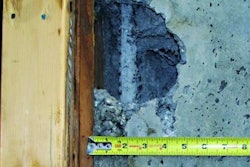Failure of the super committee to act continues to leave major infrastructure legislation in limbo.
The Budget Control Act established new spending caps ($1.045 trillion) that established the allocations in which the House and Senate Appropriations Committees drafted their fiscal year 2012 funding bills.
To date, Congress has only passed three of 12 fiscal-year 2012 appropriations bills and the federal government is currently operating under a continuing resolution that expires on Dec. 16. It is likely that the remaining appropriations bills will become part of one large legislative vehicle that will also include any must-pass legislation (measures necessary to keep government operating).
Appropriations bills that have passed thus far are the Transportation/Housing and Urban, Commerce/Justice/Science, and Agriculture bills. In the aggregate, construction accounts included in these bills saw a net decrease from FY 2011 to FY 2012. Specifically construction accounts for the Department of Agriculture including Rural Utilities Service, Conservation Stewardship, and Environmental Quality Incentives decreased by $151.2 million. The Commerce/Justice/Science bill reduced construction funding including National Atmospheric and Oceanic Administration and the Economic Development Administration, by $189.1 million. And the Transportation/HUD bill cuts construction for programs including the Federal-aid Highway Program and the FAA Airport Improvement Program by $525.8 million.
The surface transportation authorization bill has made some progress in the past several weeks. The Senate Environment and Public Works Committee (EPW) passed its two-year highway bill out of committee and the Senate Finance Committee is working to find the revenue necessary to pay for the EPW bill. In the House, Speaker John Boehner (R-OH) announced a plan to move a five-year transportation bill before the end of the year paid for through increased energy exploration and other to be announced measures.
In addition to pushing for reauthorizing State Revolving Loan Funds, the Associated General Contractors will continue to find innovative ways to fund and finance water infrastructure including lifting the volume caps on private activity bonds, increased use of public-private partnerships, and creation of a clean water trust fund.
Super Committee Fails: Prolonging Construction-Market Instability
Super Committee Fails: Where Automatic Cuts Will Come
Super Committee Fails: Effect on Taxes
Super Committee Fails: Changes to Today's Congressional Agenda



















